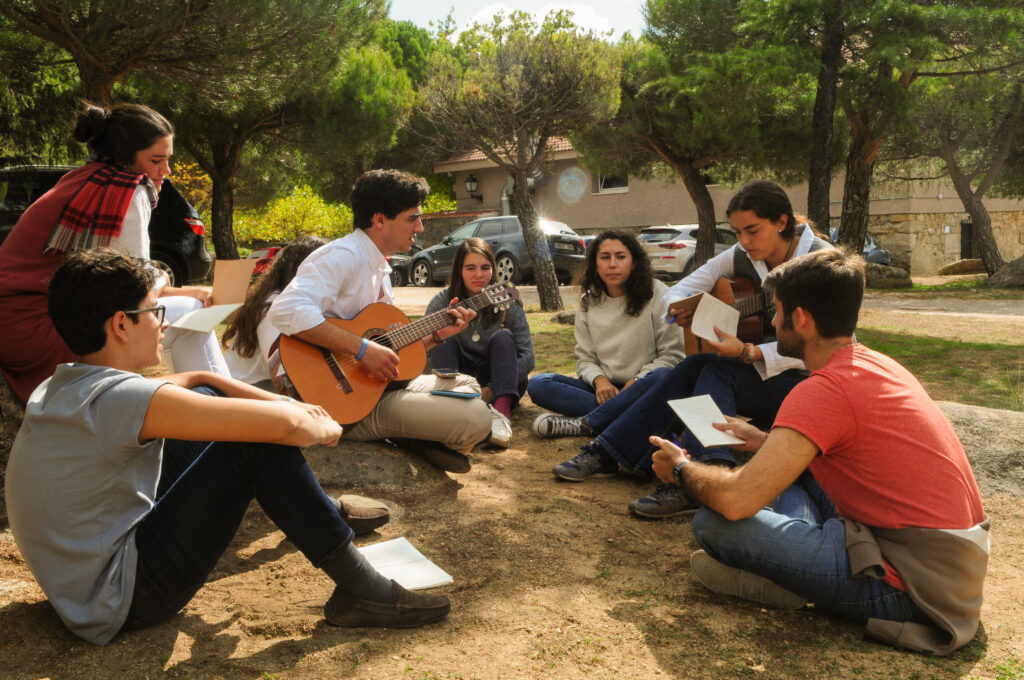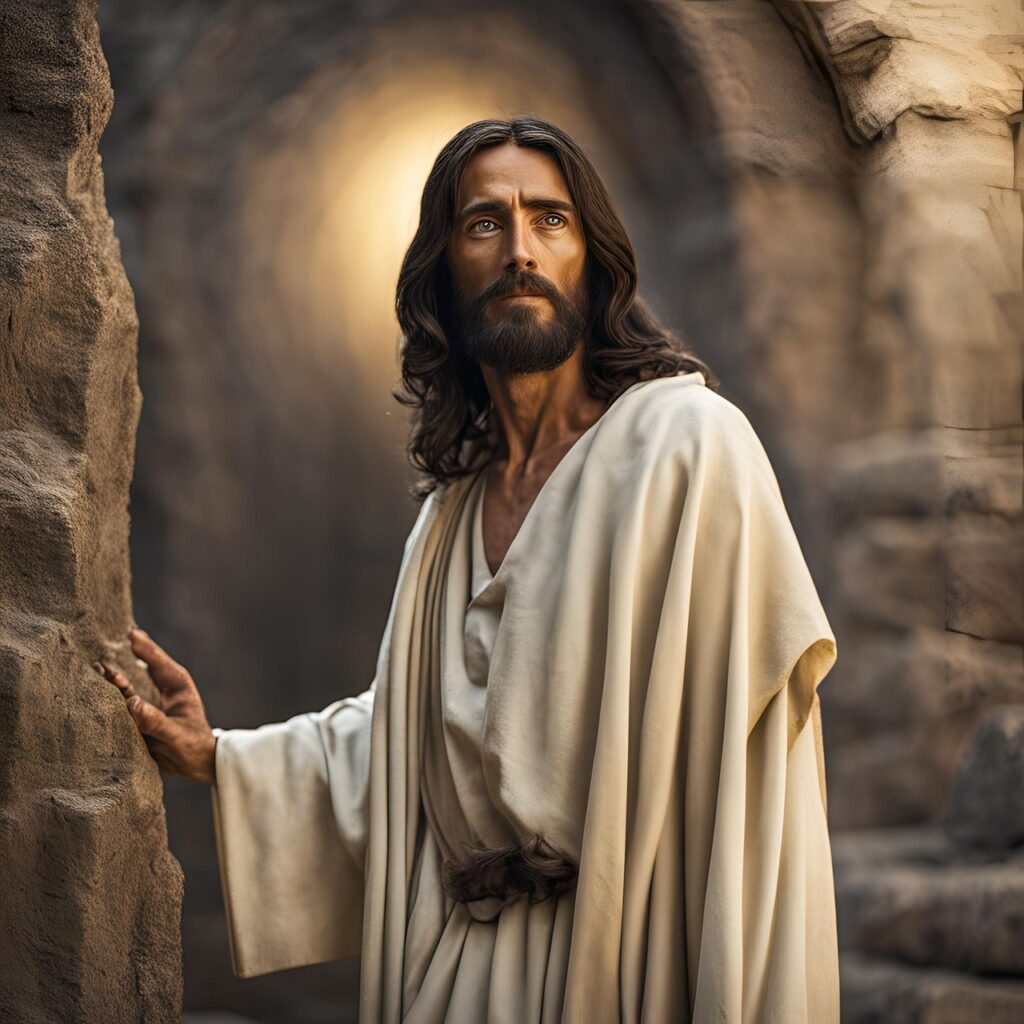Reflection by Bishop Enrique Díaz: Be imitators of me as I am of Christ
VI Ordinary Sunday

Mons. Enrique Díaz Díaz shares with Exaudi readers his reflection on the Gospel of this Sunday, February 11, 2024, titled: “Be imitators of me as I am of Christ.”
***
Leviticus 13, 1-2. 44-46: “The leper will live alone, outside the camp”
Psalm 31: “Lord, forgive us our sins”
I Corinthians 10, 31-11,1: “Be imitators of me as I am of Christ”
Mark 1, 40-45: “He was cleansed of his leprosy”
Today, as we celebrate our Lady of Lourdes, we participate in a very special way in THE WORLD DAY OF THE SICK. Thousands of sick people parade before our eyes and imagination, forgotten, separated, discarded, by institutions and often by their relatives, but loved very especially by the Lord Jesus. Perhaps illness is the most tremendous moment of loneliness. Pope Francis very rightly proposes the motto for this day: “It is not convenient for man to be alone.” And he tells us: “We were created to be together, not alone. And it is precisely because this project of communion is inscribed in the deepest part of the human heart that the experience of abandonment and loneliness frightens us, is painful and even inhuman. It is even more so in times of fragility, uncertainty and insecurity, often caused by the appearance of a serious illness.” Always, but during the Covid pandemic, the terrible loneliness and abandonment in which the sick live became more evident.
The panorama of marginalization among our people is impressive. In our society, forms of discrimination multiply: emigrants who are seen not only as strangers but as true criminals; the AIDS patients, the indigenous people, the drug victims, the women, those who are from another organization, those who do not have a job, those who think differently than us, those who are from other parties… as if we were not all Children of God! Unfortunately, territorial borders, of parties or of thought, come to destroy and question human fraternity. And, later, there are also cases of citizens who are classified into categories, first, second, third… and there are those who cannot fit into any category, are not considered citizens and are not recognized with any rights. We have a terrible fear of those who are different, and we initially adopt a defensive attitude towards them, but this often turns into an aggressive and belligerent attitude.
The mission of Jesus, more than a religious mission, is a mission of dignity, humanization, and healing. The scene of the leper helps us to make visible this spirituality of Jesus that breaks barriers and prejudices. Leprosy in Israel was a disease that destroyed all the characteristics of the person. The disease itself already brings sorrow and pain. Furthermore, the leper was excluded from the town so that he would not contaminate the community, and he was prohibited from interacting with others. Loneliness, rejection and disgrace, when marked as a threat to the life of the people, accentuated his suffering. He was considered dead, impure, contaminated and a barrier was formed between him and the community. To make matters worse, he himself had to proclaim his impurity and separation from him. Touching a leper meant becoming unclean yourself and separating yourself from the community. Just as in our society, with many new “lepers”, it is preferred to keep them isolated and forgotten. We are scandalized by these attitudes of that time, and we have very similar or worse attitudes.
What does Jesus do? He breaks this entire discriminatory and humiliating process, his hand breaks barriers. Firstly, he allows him to “come closer” and creates harmony with the marginalized, because his action is not merely a charitable work that distances, but rather a participation in the same suffering. He stands next to him, with the consequence that Jesus is also marginalized. The healing of leprosy is a messianic sign, a clear sign of the arrival of the Kingdom, breaking the root of the worst of marginalization. It is a sign pregnant with humanity: Jesus stains his hands with the pain of the person he suffers, despite the religious and social consequences that he must assume. Only by physically approaching him can he show him the closeness of God and the invalidity of ritual laws. For Him, love is above religious, social or moral laws. Jesus’ indignation is because these laws bind, marginalize and dehumanize. They create barriers and obstacles, sometimes insurmountable, that separate people from each other and also from God. How to feel the love of God when men don’t want to recognize you as a person?
The extended hand of Jesus, which touches, heals and breaks barriers, are for us a sign that calls us to commitments and reflections. On the one hand, he is not afraid to come into contact with each one of us, with the dirt and rot, with the human misery that we carry. This encourages us to draw closer to Him despite our sin and unworthiness. He never rejects us, He always wants to heal us. But, on the other hand, He also launches us to break all the barriers that we have been building around modern lepers: the elderly, migrants, the sick, etc., and asks us to walk alongside Him. In His company, let us approach today’s lepers that He “wants” to continue touching, blessing, healing and restoring dignity.
We need to remove the barriers from our minds and hearts to open ourselves and become sensitive and merciful like Jesus. May he continue touching and caressing through our hands; through our eyes looking with joy and tenderness; and through our hearts uniting, restoring and humanizing. On this day, dedicated in a special way to the sick, we will have to learn a lot from the merciful heart of Jesus. The Pope encourages us by telling us that “The sick, the frail, the poor are at the heart of the Church and must also be at the center of our human attention and pastoral care. Let’s not forget this. And let us entrust ourselves to the Most Holy Mary, Health of the Sick, so that she may intercede for us and help us to be architects of closeness and fraternal relationships.”
What does the Lord commit us to today? What can we do to erase the barriers of discrimination and borders that destroy brotherhood?
Our Lord Jesus Christ, loving hand of the Father, who heals and gives life, grant us that we never close our hand to our helpless brother, but that we always establish bonds of union and love. Amen.
Related

After Eight Days Jesus Arrived: Commentary by Fr. Jorge Miró
Jorge Miró
26 April, 2025
3 min

The Perspectivas del Trabajo Foundation is founded with the aim of promoting virtues for professional development
Exaudi Staff
25 April, 2025
2 min

Reflection by Bishop Enrique Díaz: Alleluia, alleluia
Enrique Díaz
20 April, 2025
5 min

Christ is Risen! Alleluia! Commentary by Fr. Jorge Miró
Jorge Miró
20 April, 2025
3 min
 (EN)
(EN)
 (ES)
(ES)
 (IT)
(IT)

